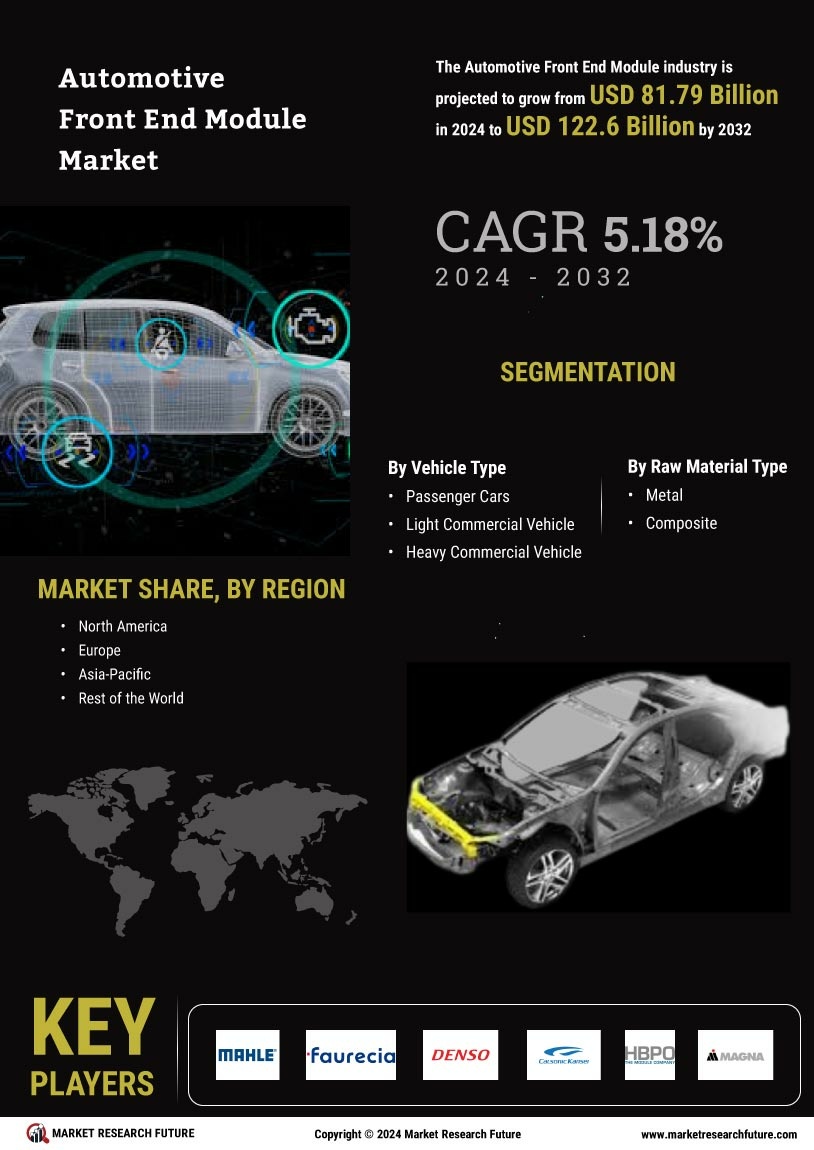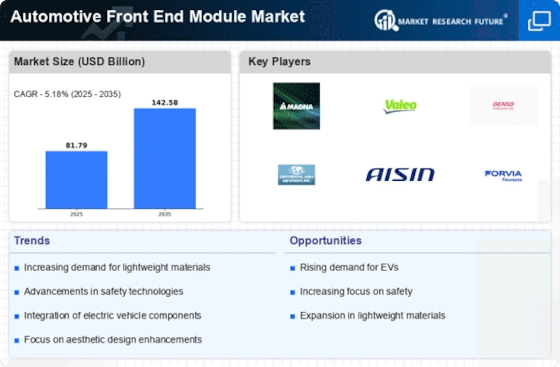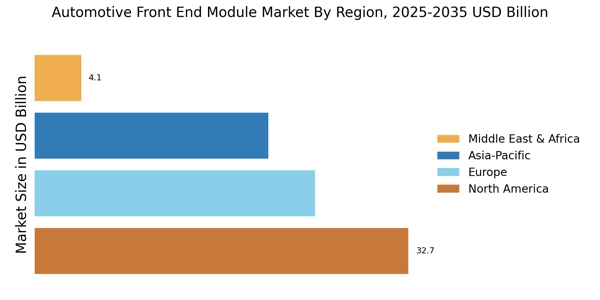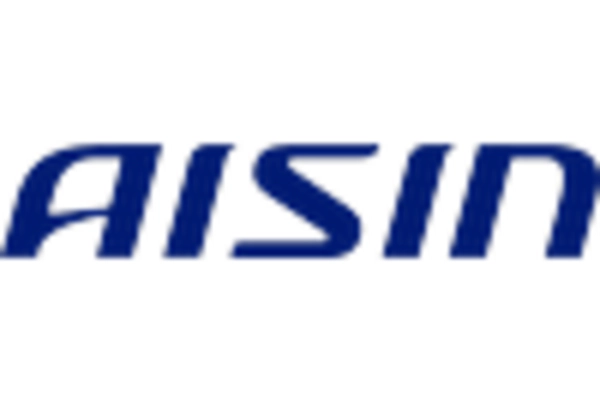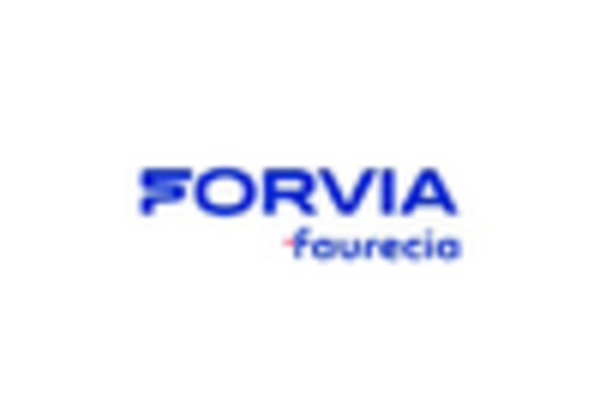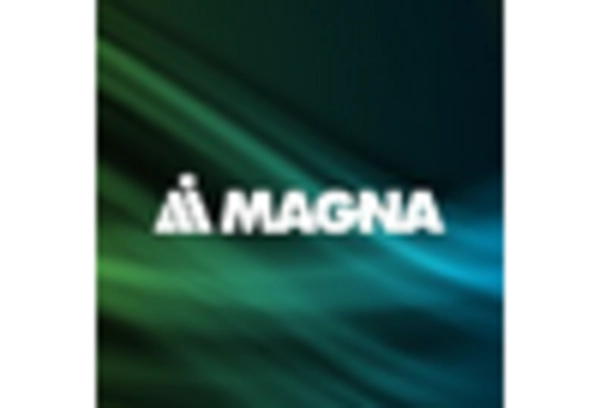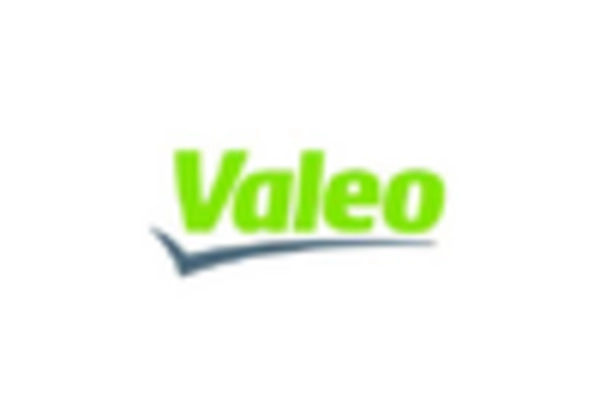Leading market players are investing heavily in research and development in order to expand their product lines, which will help the Automotive Front End Module market, grow even more. Market participants are also undertaking a variety of strategic activities to expand their global footprint, with important market developments including new product launches, contractual agreements, mergers and acquisitions, higher investments, and collaboration with other organizations. To expand and survive in a more competitive and rising market climate, Automotive Front End Module industry must offer cost-effective items.
Manufacturing locally to minimize operational costs is one of the key business tactics used by manufacturers in the global Automotive Front End Module industry to benefit clients and increase the market sector. In recent years, the Automotive Front End Module industry has offered some of the most significant advantages to medicine. Major players in the Automotive Front End Module market, including Mahle GmbH, Faurecia SA, Denso Corporation, Calsonic Kansei Corporation, Hbpo Group, Magna International Inc., Hyundai Mobis, Plastic Omnium, SL Corporation, and Valeo S.A., are attempting to increase market demand by investing in research and development operations.
Samvardhana Motherson International Ltd (SAMIL), formerly known as Motherson Sumi Systems Limited, provides the automotive industries with wiring harness design, development, manufacture, and supply services as well as interior and exterior modules. Door panels, instrument panels, bumpers, centre consoles, decorative interior trims, assist system signal lights, blow-molded components, and high precision plastic parts are among the company's product offerings. SAMIL products are used in medical systems, earth moving and material handling equipment, tractors and farm equipment, MUVs, two-wheelers, commercial and passenger vehicles, and two-wheeled vehicles.
Additionally, it provides IT services, production assistance, and product commerce to the automotive and other industries. The corporation has operations in the Americas, Europe, Asia Pacific, and Africa. The headquarters of SAMIL are in Noida, Uttar Pradesh, India. Through its subsidiary Samvardhana Motherson Reflectec, Mother Son Group completes the acquisition of a majority stake in Turkey's Plast Met Group in May 2021. The Motherson Group now has access to the sizeable Turkish automotive market as a result of the successful completion of this transaction.
Compagnie Plastic Omnium SA (Plastic Omnium), a division of Burelle SA, produces and markets high-tech goods and automobile parts. It creates and sells bodywork modules, bumpers and front-end assemblies, body panels and spoilers, rear closure systems, semi-structural and structural elements, and other front-end modules. It also produces and sells painted external plastic and composite components. It provides goods to companies that make cars and trucks. The company conducts business across the Americas, Europe, and Asia. The headquarters of Plastic Omnium are located in Levallois, Ile-de-France, France.
Plastic Omnium announced the launch of a number of new programmes for 100% electric vehicles in October 2020. The front and rear bumpers, as well as front-end modules, are provided by Plastic Omnium for the Tesla Model 3 and Model Y. These models are made in both North America and China. Additionally, it offers front and rear bumpers for VW ID.3 and ID.4, as well as a centre console and front-end module.
